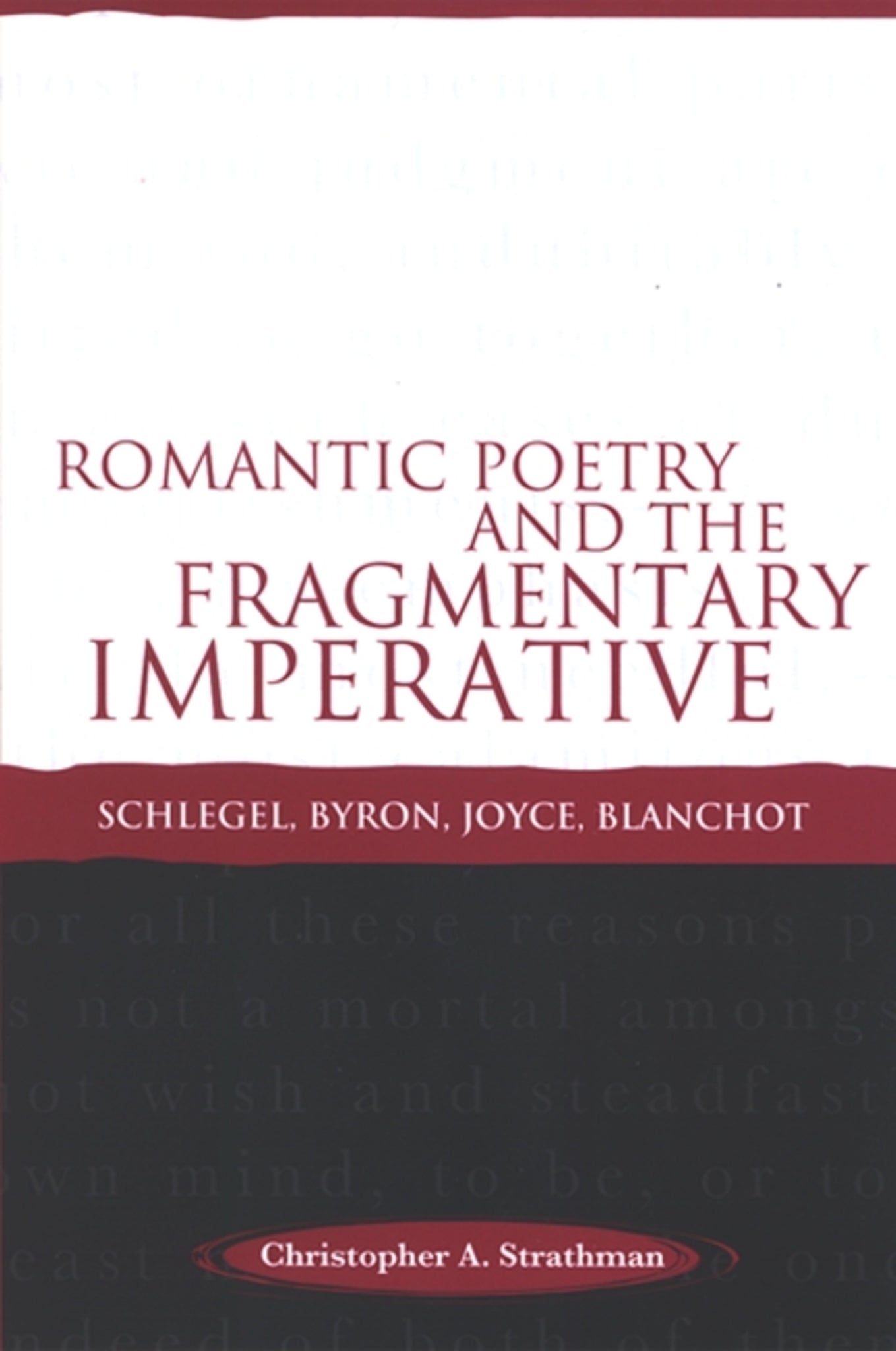We're sorry. An error has occurred
Please cancel or retry.
Romantic Poetry and the Fragmentary Imperative

Some error occured while loading the Quick View. Please close the Quick View and try reloading the page.
Couldn't load pickup availability
- Format:
-
17 November 2005

Uses the concept of the poetic fragment to draw connections between romantic poetry and modern literature and literary theory.
Romantic Poetry and the Fragmentary Imperative locates Byron (and, to a lesser extent, Joyce) within a genealogy of romantic poetry understood not so much as imaginative self-expression or ideological case study but rather as what the German romantics call "romantische poesie"-an experimental form of poetry loosely based on the fragmentary flexibility and acute critical self-consciousness of Socratic dialogue. The book is therefore less an attempt to present yet another theory of romanticism than it is an effort to recover a more precise sense of the relationship between Byron's fragmentary or "workless" poetic and romantic poetry generally, and to articulate connections between romantic poetry and modern literature and literary theory. The book also argues that the "exigency" or "imperative" of the fragmentary works of Schlegel, Byron, Joyce, and Blanchot is not so much the expression of a style as it is an acknowledgment of what remains unthought in thinking.


Acknowledgments
1. Setting Out: Toward Irony, the Fragment, and the Fragmentary Work
2. Rethinking Romantic Poetry: Schlegel, the Genre of Dialogue, and the Poetics of the Fragment
3. Nothing so Difficult as a Beginning: Byron’s Pilgrimage to the Origin of the Work of Art and the Inspiration of Exile
4. Narrative and Its Discontents; or, The Novel as Fragmentary Work: Joyce at the Limits of Romantic Poetry
5. From the Fragmentary Work to the Fragmentary Imperative: Blanchot and the Quest for Passage to the Outside
Notes
Index



